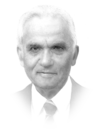The Syrian wind is turning against Erdogan

Recep Tayyip Erdogan paid a one-day visit to Moscow last week to talk to Vladimir Putin. Five days before the visit, the Turkish and Russian presidents had a telephone conversation, but apparently they needed a more comprehensive face-to-face talk.
After the closed-door meeting in Moscow, they made statements indicating agreement on a wide range of issues such as economic relations, progress in the construction by Russia of a nuclear power station in Turkey, completion of the TurkStream gas pipeline through the Black Sea, co-production of defense equipment and Turkey’s purchase of Su-57 stealth fighters. They also talked about Libya, Kashmir and other developments in the Middle East. Dmitry Rogozin, head of the Russian Space Agency, even proposed that Erdogan send a Turkish astronaut to space in 2023, in cooperation with a Russian team, to coincide with the centenary of the proclamation of the Turkish Republic.
However, on one issue they are still far apart: Idlib.
The day before Erdogan and Putin met, Russian Foreign Minister Sergei Lavrov explained Russia’s position. The Assad regime attack on a Turkish convoy near Khan Sheikhun on Aug. 19 was “legitimate and legal,” he said. “The terrorists carried out several attacks from Idlib, not only on the Syrian army, but also on the Russian military base in Hmeimim. It is only natural to attack these terrorist nests. We did not promise anyone that we would not attack terrorists. This policy of Russia is also in line with the UN Security Council resolution on Syria.”Putin said much the same when he spoke to Erdogan by telephone, so Erdogan already knew the Russian position on Idlib before the two leaders met.
After their meeting, Erdogan repeated Ankara’s position: Turkey was already hosting 3.6 million Syrian refugees; several hundred thousand refugees were now moving toward the Turkish border; Turkey had established camps on the Syrian side of the border and was trying to help them in Syrian territory.
In fact, this is what Turkey should have done years ago, at the start of the Syrian conflict, in cooperation with the international community. Instead Ankara chose to set up camps in Turkey, and failed to liaise with other countries.
Erdogan says the only way to translate into action the terms of the Sochi agreement is to prevent the regime’s attack on civilians.
Yasar Yakis
Now, if the number of the civilians fleeing their homes in Idlib continues to increase, this will cause a security risk for Turkey, because many terrorists may be among those civilians. Erdogan says the only way to translate into action the terms of the Sochi agreement is to prevent the regime’s attack on civilians.
Despite this wish, the Syrian authorities may continue to bomb civilian targets to force them to flee and later bomb the same places more intensively in order to exterminate the armed opposition. It may also do this with the intention of embarrassing Turkey by amassing refugees at the border.
Among the subjects Putin mentioned during the press conference after the meeting, two points were worth noting. One was when he said: “We decided to work together to eliminate the terrorist groups that are still operating in the Idlib province and consequently in Syria as a whole.” This shows that Putin did not change his initial position after listening to Erdogan, and instead invited him to cooperate in eliminating terrorist groups.
The second is the reference he made to UN Security Council Resolution 2254. Turkey never refers to it, but this resolution provides that all Al-Qaeda and Hayat Tahrir Al-Sham terrorist organizations may continue to be targeted, despite the cease-fire. All countries have a contractual obligation, according to the UN Security Council Resolution, to continue to fight these militant factions. Therefore, Turkey’s complaints about the Syrian government’s doing so cannot be easily substantiated.
Turkey must have eventually understood that the Syrian wind is turning against it. The Syrian government, after having defeated most of the armed opposition — except the Kurds, which is a separate issue — is now focusing on Idlib. It will probably do everything to eliminate the armed opposition. Russia is clearly supporting Syria in this endeavor, because the Hmeimim air base is close to Idlib. Furthermore, there must be many terrorists of Chechen origin in Idlib. If they are not eliminated in Idlib, they may find their way back to Chechnya, in Russia. Moscow would prefer to eliminate them in Idlib.
These subjects will probably be raised in the trilateral summit to be held next month in Turkey, and Erdogan may face tougher resistance there.
- Yasar Yakis is a former foreign minister of Turkey and founding member of the ruling AK Party. Twitter: @yakis_yasar









































